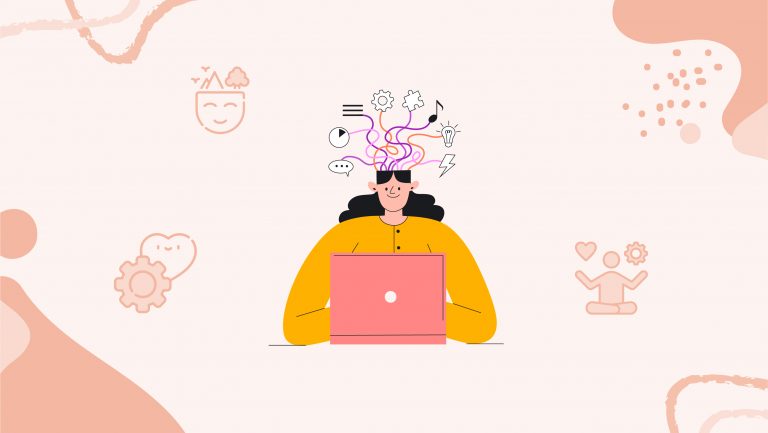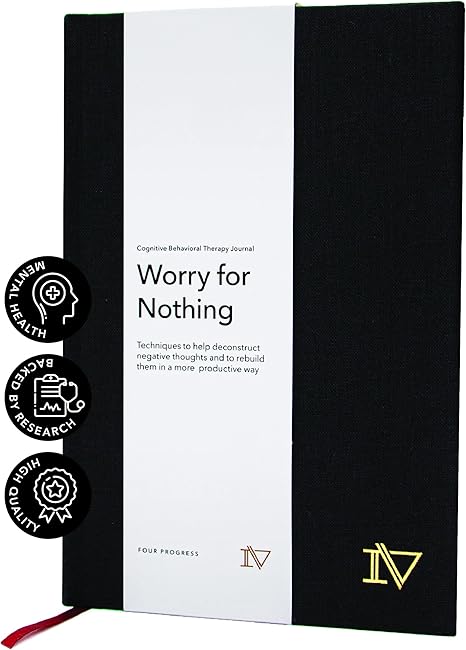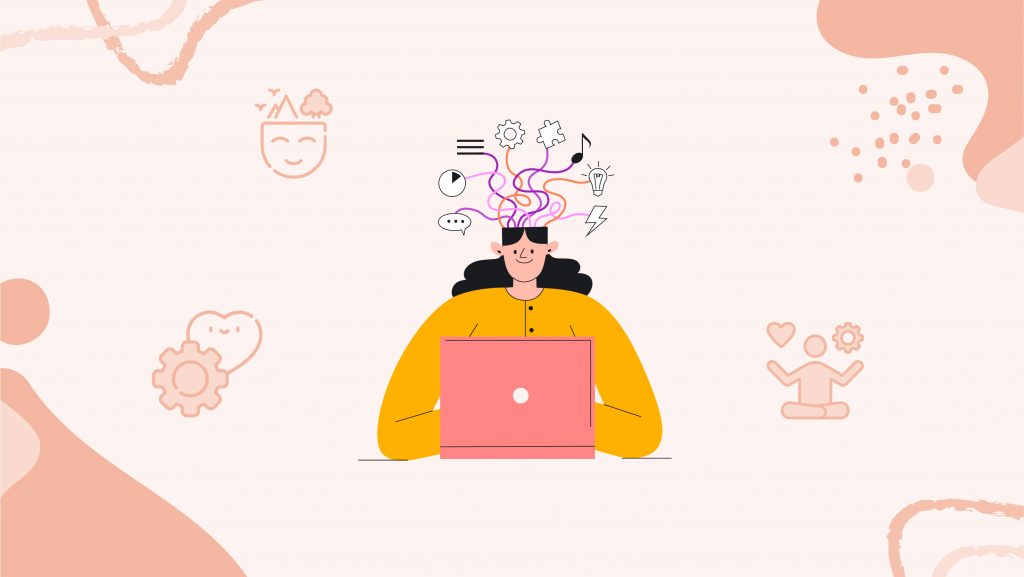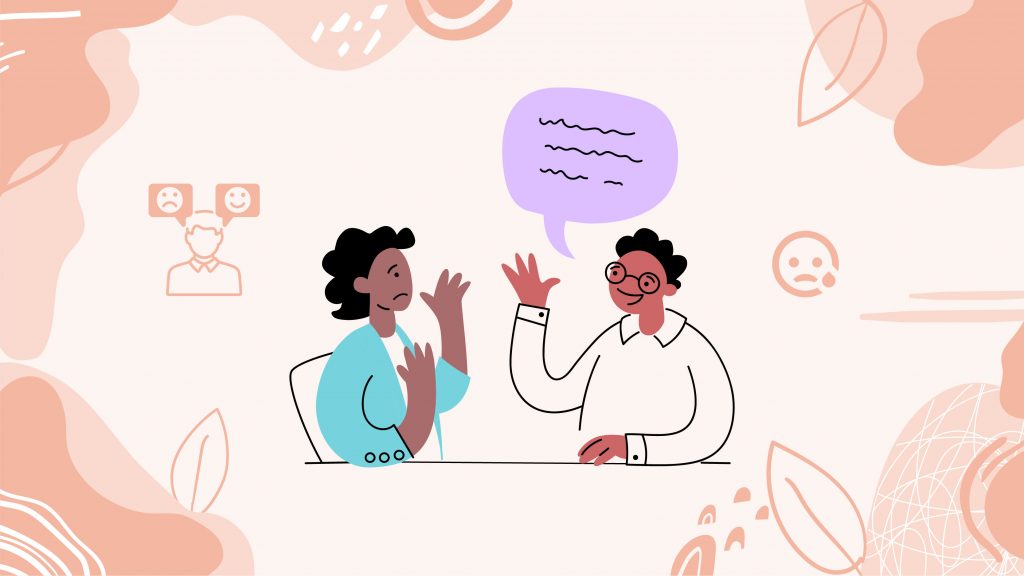“Afraid to be stressed, we all longed for peace! Learned to be quiet, we, engulfed by it.”
The word stress is something that no one ever wants to be near or surrounded by. However, we are trapped in it, sooner or later, without even realizing it.
We live in a chaotic world where things revolve around materialistic life. To achieve that, we constantly work under pressure, compete with each other, and live without breaks, leading a stressful life.
Managing stress is essential for living a balanced, healthy, and peaceful life that will help you focus, plan, and achieve your goals.
Overview
At one point or another, we all have experienced stress. There are plenty of sources around you, pushing towards the stress. They can be in the form of work pressure, unhealthy relationships, financial problems, or health issues.
As social animals, we can never escape these essential life requirements. Some people see stress differently as a motivating factor, while others find it challenging to manage and maintain, hence suffering from various physical and mental issues. At that point, managing stress for overall well-being and improving quality of life becomes crucial.
Let’s explore the signs and causes of stress, its effects, how to manage it, and the benefits of reducing stress.
Signs That You Are Stressed
If we want to manage stress in our lives, we must first recognize the signs of stress. The common symptoms of stress include fatigue, headaches, difficulty concentrating, and sleep disturbances. If you have any of these signs, you are stressed, and your body and mind need attention.
Analyzing the signs of stress makes it easier to identify the causes and prepare a successful plan to manage it and maintain overall well-being. Here are some of the common signs that you might observe in your daily life.
#1: Irritable and Impatient
If you are experiencing irritation over small things and your patient level is decreasing, there is a possibility that you are suffering from stress.
#2: Overwhelmed
Feeling overburdened or overwhelmed by little things might be another sign of stress that can go unnoticed and sink deeper into you.
#3: Mind Full of Unnecessary Thoughts
If you have thoughts racing in your mind without any break and have no idea how to get out of it, you are under stress and need to take proper action to manage it.
#4: Feeling Neglected or Lonely
You constantly feel that you are not heard by others or that you are lonely even when you are surrounded by other people. This is a common sign of stress that you need to break through.
#5: Anxious and Worried
That constant feeling of worry, fear, or anxiety that something terrible is going to happen is, in fact, not the case; however, your mind is not letting you think straight, which is another sign of stress.
#6: Losing Interest in Things
You are not interested in things that used to make you happy and cheerful. You are starting to lose interest in your hobbies, and suddenly, this feeling of constant fatigue rises, and wanting to sleep all the time hits, indicating that you are stressed.
#7: Difficulty Breathing
You might find yourself in a situation where you feel unable to breathe properly or think straight, making the situation worse. This is when you need to take essential steps to manage your stress.
#8: Panic Attacks and Sleep Problems
Recently, you have been having panic attacks over little things; you cannot breathe properly or have sweaty palms or forehead, and your mind blacks out completely. It is a sign that stress has taken over your mind and body and is consuming you slowly.
What Causes You Stress?
To successfully manage the stress in your life, it is essential to understand the causes of stress and to prepare an effective plan to overcome it.
#1: Unhealthy Relationships
Being unaware of a toxic relationship around us, we might be going deeper into the trap of stress and anxiety. A relationship with your family, friends, or colleagues giving you constant worry and an environment of tension with a lack of support and emotional drain is considered a toxic relationship.
It is essential to recognize these unhealthy relationships and take the necessary steps to address and resolve them through proper communication, setting boundaries, or getting professional help. You can also practice mindfulness and meditation to calm your mind and take necessary actions.
#2: Work-Life Imbalance
We constantly work without giving ourselves any space or time. Working for hours under pressure, leaving no time for proper meals or physical activity, is a common cause of stress and anxiety.
If you are having difficulty balancing your work and life, you need to develop strategies for managing your time, prioritizing important things, and making changes in your lifestyle by spending time with yourself or keeping a stress journal.
#3: Financial Instability
Financial instability can be another reason for your stressful life. We all have expectations of ourselves, most related to our economic success. When we cannot fulfill these expectations, we feel more anxious and stressed, leading to an unfocused mind and disturbed sleep patterns.
These issues can be resolved by creating budgets, finding multiple sources of income, or getting financial advice. Life does not remain the same every time. However, we can choose to stay calm and think clearly by opting for stress management techniques.
What is Stress Management?
Stress management is the process of identifying and understanding the causes of stress and taking essential steps to handle it effectively. It includes recognizing the source of stress in your life and finding ways to minimize its impact on your well-being.
The first step in stress management is to identify the signs of stress. We neglect various signs in our daily lives, which can lead to serious stress issues and affect our physical and mental health. Addressing these signs and understanding the causes behind them is essential to maintaining a balanced life.
Once you know the signs and causes behind your state of tension and strain, you must act and prepare effective strategies to manage it properly. Let’s discuss how to manage stress in detail to make our lives focused and peaceful.
Powerful Ways to Manage Stress
Once you are familiar with the signs and causes of stress, the real question is how to manage stress. We all know that with the needs of a fast-moving world, anyone can easily get stressed and face issues such as constant tiredness and disturbed sleep.
In that case, it becomes crucial to understand stress management techniques and their essential role in improving our lifestyle. Here are the practice strategies to improve your life’s quality and manage stress:
#1: Yoga & Meditation
Including yoga and meditation in your daily routine improves your physical health and balances your mental fitness. Practicing yoga has several benefits that help you strengthen your inner system by balancing cortisol levels, and meditation is the best solution for keeping your mind calm and peaceful, as well as boosting dopamine levels and making you emotionally intense.
- Practice Deep Breathing
Deep breathing exercises help you relax and increase your focus, resulting in less stress and more productivity. Find and sit in a quiet place, and start by taking slow, deep breaths. Then, pause for a few seconds and exhale slowly. This simple practice can significantly reduce stress and anxiety.
- Laugh Therapy
Another common way to reduce stress is laughter therapy, as laughter is said to be a powerful stress reliever. You can engage in activities that make you laugh, such as watching a funny movie or spending time with your friends. Every time you laugh, you release the chemical endorphins, which are excellent for improving your mood and reducing stress.
- Physical Relaxation
Progressive muscle relaxation is the best technique for reducing physical tension and stress. Regular practice will help you recognize the symptoms of physical stress and effectively reduce them.
#2: Physical Activities
Physical activities play an essential role when it comes to coping with stress and anxiety. There are several outdoor activities and exercises that not only boost your overall health but also help you reduce stress and become more focused on your life goals.
- Outdoor Activities
You can do multiple outdoor activities, such as hiking, running, cycling, or physical exercises, which help you reduce tension and gain physical and mental strength.
- Dancing & Aerobics
Dancing to the beat of music is an excellent way to reduce stress and change your mood by releasing endorphins. When it comes to distracting yourself from all of the negative emotions and thoughts, dancing and aerobic movements are the best ways to achieve joy and forget the worries.
- Swimmings
Swimming is a great sport and an even greater stress reliever. The soothing effect of water helps you calm your body and mind, promoting less stress and anxiety. To enhance the impact of swimming, you can choose to swim in a natural lake or an ocean by surrendering yourself to the lab of nature.
#3: Better Sleep Habits
Sleep plays an essential role in maintaining a peaceful and active mind. However, irregular sleeping patterns can increase stress levels and disturb thinking, making concentrating and disturbing decision-making ability difficult.
Here are some excellent strategies to help you attain good sleep habits and bring peace to your mind.
- Set Consistent Sleep Time
Setting a consistent sleep-wake time for at least 21 days helps you improve your overall health and change your irregular sleeping patterns. You will be able to wake up early with a fresh mind setup and maintain activeness throughout the day.
- Manage Screen Time
If you are on a journey to improve your bad sleep habits, it is important to manage your screen time before bed. You must set a regular bedtime and shut off all the screens at least an hour before that. You can read a book instead of scrolling through your phone and sleep peacefully.
- Avoid Late Night Eating
Late-night eating negatively affects your sleep schedule and disturbs your sleeping patterns. You must try to have your last meal a few hours before bedtime without sacrificing your good sleeping time.
- Create a Restful Environment
To have a peaceful sleep, it is important to create a restful environment by keeping the surroundings dark, cool, and quiet. This will prompt better sleep and a calm mind.
#4: Healthy Eating
Another great way to reduce stress is to eat a healthy and balanced diet. Here’s how healthy eating promotes a stress-free and healthy lifestyle.
- Never Skip Breakfast
When you start your day with a healthy breakfast, you help keep your mood positive throughout the day and provide sufficient energy to fight stressful moments effectively.
- Eat more Vegetables and Fruits
We always hear that eating fresh fruits and vegetables is the best way to maintain a healthy body and mind. They are rich in vitamins and minerals, which promote overall health and reduce stress.
- Drink Enough Water
A deficiency of water can be another reason for a stressful day. Drinking enough water regularly is always advised to keep your body functioning better.
- Include a Balanced Diet
Including a balanced diet with proteins, carbohydrates, and healthy fats provides the necessary nutrients to keep your body and mind healthy and stress-free.
#5: Get Social
Another great way to reduce stress and distract yourself from negative thoughts is by socially interacting with other people. Here are some ways to help you get social:
- Spent Time with Friends and Family
Spending enough time with your family and friends makes it easy to cope with stress. You can share your feelings and thoughts with them, which lightens your mood, and get their advice to manage stress in your life.
- Involve in Social Activities
If you are having disturbing thoughts or feeling more stressed and anxious, you must get involved in social activities. They are a great way to distract your mind, learn new things, and meet new people, ultimately reducing your stress.
- Connect with New People
When they are stressed, most people tend to stay isolated and avoid interacting with other people. However, doing the opposite, connecting with people and sharing feelings and thoughts, will elevate your mood and make you feel less anxious.
#6: Spend Time With Yourself
Having some “me time” becomes even more essential when looking for different ways to cope with stress and finding it challenging to manage it with other alternatives. Spending quality time with yourself gives you the space you need and enough time to address the issues causing you stress and how to resolve them.
If you are confused about how to spend time with yourself, here are a few things that you can do:
- Keeping a Stress Journal
Keeping a stress journal is the best way to analyze your daily routine and understand the signs and causes of stress so that you can take the necessary steps. You can use your journal to write down your daily thoughts and feelings. That will lift your mood and give you a clear vision to resolve the factors affecting your mental health.
- Connect with Nature Connecting with nature is a great way to reduce stress and feel more relaxed. When your mind is troubled and you cannot think clearly, take a walk in a peaceful setting and empty your mind to feel the calmness of your surroundings. Fill up with positivity and surrender yourself to serenity. You will feel more energetic and ready to face the work again.
- Enjoy your Hobbies If you are too indulged in this busy world, you must stop and take some time for yourself and enjoy the hobbies you left behind. It will help you reconnect with yourself, boost your mental strength, and give you the peace of mind you need.
- Acceptance is the Key If you are stuck and stressed, you cannot find any way out; you need to accept the things you cannot change and focus on the things you can control to reduce stress and plan a better life.
How [NOT] to Manage Stress
Most of us, when stressed, choose to go for temporary solutions rather than looking for the leading cause and resolving it. A temporary solution will only take you away from the reality of life and make you more anxious and stressed later on. Here are some unhealthy ways people choose to deal with stress that should be avoided:
#1: Smoking, Drinking, and Drug Use
Some people choose to smoke, drink, or use drugs to get temporary relief from stress rather than finding a permanent solution. These temporary solutions not only affect your health majorly but can cause you life-threatening diseases and eventually increase your stress level even more.
#2: Comfort Eating
If you choose eating as a solution to your stress, you are going wrong. Eating more or unhealthy food will never help you reduce stress, but it will only cause more stress and health issues such as weight gain, which will impact your mental and physical health.
#3: Excessive Screen Time
If you feel stressed and think spending time on social media will distract your mind, you will feel relaxed. Then, you need to think about the consequences that excessive screen time brings. Using too much social media only makes you feel more anxious and stressed, and you end up feeling more disturbed.
#4: Isolation
Isolation is never a solution to your stressful life. If you are isolating yourself, thinking it will help you manage your stress, then you are wrong. Isolation will only push you towards more negative thoughts and a stressful life. On the other hand, connecting with people and sharing your feelings will help you reduce stress and find better ways to manage it.
#5: Sleeping Too Much
Sleeping too much is a sign that you are trapped in the realm of stress, and you will never get out of it if you are not making enough effort to wake up and realize that the sleep trap is not the solution but a cause for more stress and anxiety. You need to focus on the issues causing you stress rather than sleeping them off and prepare a practical plan to manage them.
How Stress Affects Your Health and Emotions
Stress affects your emotional health and physical well-being. Several reasons can cause stress and affect your body, mind, way of thinking, and handling of emotions. Here are some health and emotional effects of stress:
#1: Change in Behaviour
Stress can change a person and his personality 360 degrees. If someone is stressed, he cannot think straight and decide if his actions affect him or the people around him. He will start behaving like a completely different person. His eating and sleeping habits will change, and he will try to isolate himself.
#2: Anxiety and Depression Symptoms
If you are feeling overwhelmed about small things and your thinking ability is disturbed, you feel stressed. You cannot focus on things, and you are showing symptoms of anxiety and depression, which is a common effect of stress.
#3: Sleep Issues
A person under stress will face sleep issues and have irregular sleep patterns. He will find himself wide awake in the middle of the night and sleeping late until noon or afternoon. Irregular sleeping patterns will result in being less active during the day and restless at night.
#4: Headaches & Migraines
Headaches and migraines are common effects of stress, which can cause your body to not function correctly. Stress causes muscle tension and changes in brain chemicals, affecting your mental fitness and causing headaches.
#5: Multiple Health Problems
Having a stressful life can cause multiple health problems, including a weak immune system and a risk of heart disease, magnifying the existing health issues.
How Reduced Stress Benefits You
If you can manage stress and mold it into your motivating factor, you can achieve your goals and live a peaceful life. Let’s discuss more about the benefits of life and how it affects your health.
#1: Improved Mental Health
Well-managed stress can help you improve your mental health and increase your focus and decision-making ability. To attain a peaceful mind and a happily balanced life, you must learn strategies for managing stress.
#2: Better Sleep
If you understand the importance of stress management and know the practical steps to reduce stress, you can have regular, peaceful sleep and wake up refreshed every morning.
#3: Reduced Blood Pressure
Lower stress levels lead to a better cardiovascular system and reduced hypertension, resulting in reduced blood pressure.
#4: Better Digestion and Immune System
A person with lower stress can have better physical health. Lower stress levels promote better digestion by reducing disturbance and increasing nutrient absorption. They also boost the immune system, improving resistance to infections.
Conclusion
Understanding the importance of stress management plays an important role in improving a person’s overall health. One can easily cope with daily stress by incorporating positive habits such as mindful meditation, deep breathing, physical activities, and spending time with oneself.
A person with a lower stress level has a more focused mind, clarity toward his goals, and better physical health. You must prioritize stress management and reduction to live a healthier and happier life.
“Peace and serenity, that we all desire! Mindful practices, the ways to a happier life!”
Sources
- National Health Service, 2020: An NHS Self Help Guide for Stress
- University of Montana x Healguide: Simple Tips to Get Stress in Check and Regain Control of Your Life
- Welcome to the University Health Network: Stress Reduction Guide
- Dr. Radhika Kapur (University of Delhi): Stress Management – A Case Study
- Bishawjit Chandra Deb and Sujan Kanti Biswas (The International Institute for Science, Technology, and Education): Stress Management: A Critical View





















